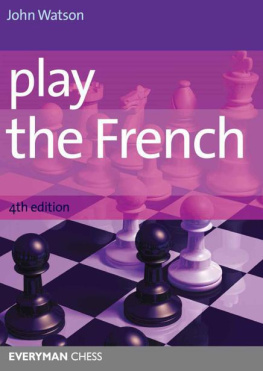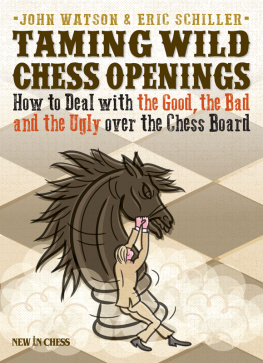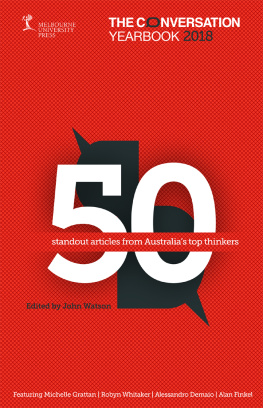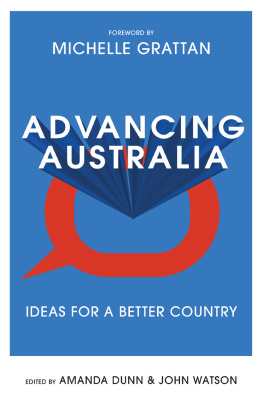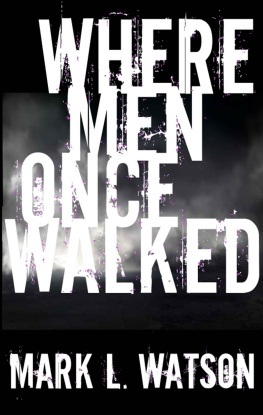John Watson - Play the French
Here you can read online John Watson - Play the French full text of the book (entire story) in english for free. Download pdf and epub, get meaning, cover and reviews about this ebook. year: 2012, publisher: Everyman Chess, genre: Home and family. Description of the work, (preface) as well as reviews are available. Best literature library LitArk.com created for fans of good reading and offers a wide selection of genres:
Romance novel
Science fiction
Adventure
Detective
Science
History
Home and family
Prose
Art
Politics
Computer
Non-fiction
Religion
Business
Children
Humor
Choose a favorite category and find really read worthwhile books. Enjoy immersion in the world of imagination, feel the emotions of the characters or learn something new for yourself, make an fascinating discovery.
- Book:Play the French
- Author:
- Publisher:Everyman Chess
- Genre:
- Year:2012
- Rating:5 / 5
- Favourites:Add to favourites
- Your mark:
- 100
- 1
- 2
- 3
- 4
- 5
Play the French: summary, description and annotation
We offer to read an annotation, description, summary or preface (depends on what the author of the book "Play the French" wrote himself). If you haven't found the necessary information about the book — write in the comments, we will try to find it.
Play the French — read online for free the complete book (whole text) full work
Below is the text of the book, divided by pages. System saving the place of the last page read, allows you to conveniently read the book "Play the French" online for free, without having to search again every time where you left off. Put a bookmark, and you can go to the page where you finished reading at any time.
Font size:
Interval:
Bookmark:
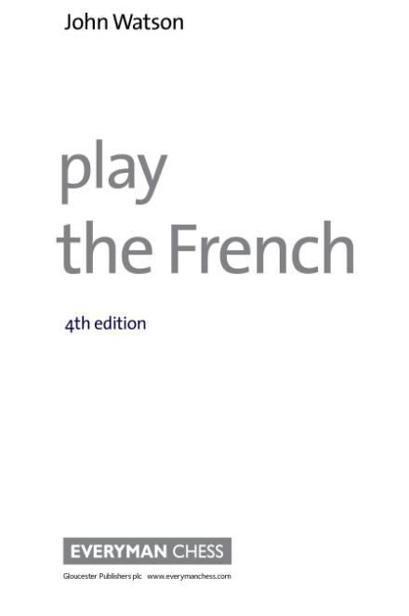
First published in 2012 by Gloucester Publishers Limited, Northburgh House,
10 Northburgh Street, London EC1V 0AT
Copyright 2012 John Watson
The right of John Watson to be identified as the author of this work has been
asserted in accordance with the Copyrights, Designs and Patents Act 1988.
All rights reserved. No part of this publication may be reproduced, stored in a
retrieval system or transmitted in any form or by any means, electronic,
electrostatic, magnetic tape, photocopying, recording or otherwise,
without prior permission of the publisher.
British Library Cataloguing-in-Publication Data
A catalogue record for this book is available from the British Library.
ISBN: 978 1 85744 939 6
Distributed in North America by The Globe Pequot Press, P.O Box 480,
246 Goose Lane, Guilford, CT 06437-0480.
All other sales enquiries should be directed to Everyman Chess, Northburgh House,
10 Northburgh Street, London EC1V 0AT
tel: 020 7253 7887 fax: 020 7490 3708
email: info@everymanchess.com; website: www.everymanchess.com
Everyman is the registered trade mark of Random House Inc. and is used in this work under licence from Random House Inc.
To Gerry Giles, my favourite teacher and father-in-law, for his kindness and generosity.
Everyman Chess Series
Chief advisor: Byron Jacobs
Commissioning editor: John Emms
Assistant editor: Richard Palliser
Typeset and edited by First Rank Publishing, Brighton.
Cover design by Horatio Monteverde.
Contents
Bibliography
Rather than present a nearly endless list of sources, Ive chosen the most influential titles which have appeared since the previous edition, as well as important periodicals. You should note that, although I credit authors and annotators for significant analysis, I havent cited one- or two-move suggestions for the most part, especially not if theyre Rybka s or Houdini s (or Fill-in-the-Blanks) immediate choice!
Books and eBooks
Attacking Chess: The French , Simon Williams (Everyman 2011)
Chess Explained: The French , Viacheslav Eingorn & Valentin Bogdanov (Gambit 2008)
Dangerous Weapons: The French (aka DWF ), John Watson (Everyman 2007)
French Advance (2nd edition), Sam Collins (Everyman 2006)
French: Advance and Other Lines , Steffen Pedersen (Everyman 2005)
French Defence: 3.Nc3 Bb4 , Lev Psakhis (Batsford 2003)
French Defence Advance Variation , Volumes 1&2 , Evgeny Sveshnikov; (Olms 2007)
French Defence: Steinitz, Classical, and Other Systems , Lev Psakhis (Batsford 2004)
How to Beat the French Defence , Andreas Tzermiadanos (Everyman 2008)
How to Play Against 1 e4 , Neil McDonald (Everyman 2008)
Opening Repertoire According to Anand, Volumes 6&7 , Alexander Khalifman (Chess Stars 2006)
Play the French (1st edition, aka PTF1 ), John Watson (Everyman 1984)
Play the French (2nd edition, aka PTF2 ), John Watson; (Everyman 1996)
Play the French (3rd edition, aka PTF3 ), John Watson (Everyman 2003)
Starting Out: 1e4! , Neil McDonald (Everyman 2006)
The Flexible French , Viktor Moskalenko (New in Chess 2008)
The Wonderful Winawer , Viktor Moskalenko (New in Chess 2010)
The French Defence: A Complete Black Repertoire , Nikita Vitiugov (Chess Stars 2010)
The French Defence Reloaded , Nikita Vitiugov (Chess Stars 2012)
CDs and DVDs
1 ... e6: A Solid Repertoire , Nigel Davies (ChessBase 2009)
Beating the French, Volumes 1&2 , Rustam Kasimzhdanov (DVD, ChessBase 2007)
The French Defence , Ari Ziegler (DVD, ChessBase 2006)
Fit for the French , Viktor Bologan (ChessBase 2010)
Killer French Defence (Parts 1 and 2), Simon Williams (DVD, Ginger GM 2010)
Encyclopaedia of Chess Openings, Volume C (aka ECO ) (DVD, Chess Informant 2007)
Opening Encyclopaedia 2011 (DVD), (ChessBase 2011)
Franzsisch Vol.1-2 , Thomas Luther (ChessBase 2005)
Periodicals & Websites
Secrets of Opening Surprises, Jeroen Bosch, Editor (New in Chess)
ChessBase Magazine (DVD), ChessBase
New in Chess Yearbook (New in Chess)
Kaissiber , Stefan Bcker, Editor
Chess Informant (Chess Informant)
New in Chess Magazine (New in Chess)
ChessPublishing.com , Tony Kosten, Webmaster and Editor
The Week in Chess , Mark Crowther
Major Databases
UltraCorr3a , Tim Harding (2010)
Correspondence Database 2011 (ChessBase 2011)
Megabase 2012 (ChessBase 2012)
Downloads from The Week in Chess and the Internet Chess Club
Introduction
Why another edition of Play the French ? Over the past two or three years, after all, numerous books on the French Defence have appeared, most of them written by very competent and insightful authors. As is the wont with modern opening works, these books usually centre their recommended variations around an instructive and/or entertaining game, without great depth but with sufficient detail to show the main branches and explain basic ideas. This is absolutely legitimate and is in fact the direction towards which I have gravitated in some of my own works. But it leaves room for a book on the French with fewer generalities and more nitty-gritty chess substance, one in which you have a better chance of finding precisely how your latest adventure with 1 ... e6 corresponds to a set of moves in the book, whether or not those moves are flawed. Play the French 4 is first of all a repertoire book, with a wider-than-normal choice of lines; but it is also as a reference work which tries to anticipate as many of your opponents logical moves as possible.
The repertoire itself is highly flexible, consisting of both mainstream variations and experimental forays. At most key junctures, the reader is offered two or more distinct variations to choose from, providing sound alternatives should some line of play prove unsatisfactory or in need of repair. Of course, a book that tries to cover so many byways will necessarily be dense and in some spots difficult to read. Therefore you may want to skim over chapters before settling in to a closer examination. But I would urge you to pay particular attention to the alternatives Ive given to what are (temporarily) the main lines. This both prepares you to meet moves that are likely to be played, but also informs you of key ideas that may not be explicitly described elsewhere. Notice, too, that Ive let many subvariations speak for themselves. Not that Play the French was ever excessively chatty, but I have often sacrificed verbiage to make room for specifics. Ive also devoted much more space to original analysis, with less resort to bare game excerpts.
Whats new in this edition? Its been nine years since Play the French 3 , seemingly a lifetime given the rapidity with which theory changes in such a popular opening. I have therefore updated and re-analysed the great majority of variations, often in depth. Ive also presented new solutions. For example, in the Advance Variation (3 e5), apart from changing some fundamental ways of playing 5 ... Qb6 in the main line, I have added a chapter on 5 ... Nh6. Versus the Tarrasch (3 Nd2), I have returned to 3 ... Nf6, not only on the basis of proven merit but also because very little, if anything, has changed in a fundamental sense in the 3 ... c5 lines. In the Winawer (3 Nc3 Bb4), you will see a new chapter on 6 ... Qa5 (which I call the Portisch-Hook Variation), and a return to the Winawer Poisoned Pawn in the main 7 Qg4 line. There are two new chapters on the MacCutcheon Variation (3 Nc3 Nf6 4 Bg5 Bb4, replacing 4 ... dxe4), which is an active approach in the spirit of the Winawer; and youll also find a new main line in the Classical System (3 Nc3 Nf6 4 e5).
These variations and similarly new approaches in lesser systems by no means indicate the failure of corresponding solutions from previous editions; on the contrary, most of them are still fully playable. But they do show how wonderfully flexible the French Defence is, and how you neednt despair of it should a particular system fail to satisfy your needs. Finally, in terms of coverage, I have tried to pay deeper and more respectful attention to variations which are not currently in fashion and/or which have a strong following at lower levels of play.
Next pageFont size:
Interval:
Bookmark:
Similar books «Play the French»
Look at similar books to Play the French. We have selected literature similar in name and meaning in the hope of providing readers with more options to find new, interesting, not yet read works.
Discussion, reviews of the book Play the French and just readers' own opinions. Leave your comments, write what you think about the work, its meaning or the main characters. Specify what exactly you liked and what you didn't like, and why you think so.

